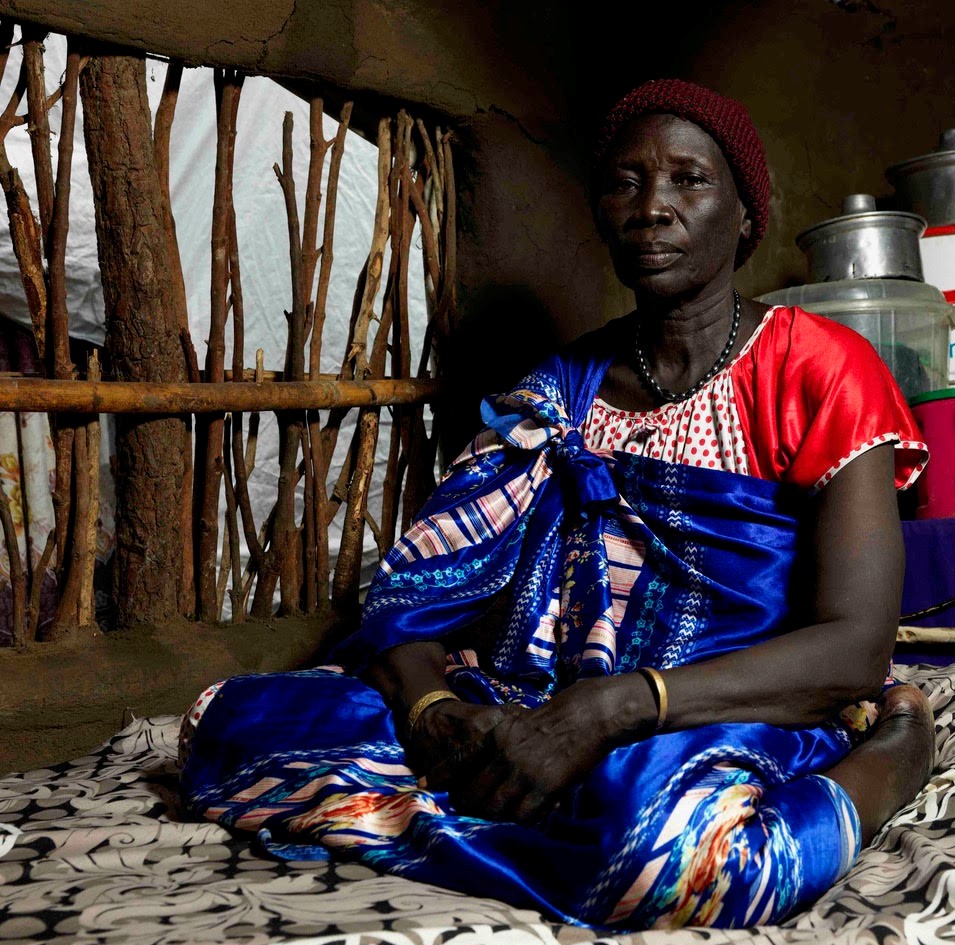"I feel weaker and there wasn't enough food for all of us."

Since civil war broke out in South Sudan in 2013, millions of people have been forced to flee their homes, with many escaping violence and conflict. Densely populated camps for displaced people and UN Protection of Civilian Sites (PoC) house many of them, despite being intended as a temporary solution to what has become a protracted humanitarian crisis.
When the war started in Nyanjuk’s home state, she fled with her brother and niece in fear of their lives, leaving their home and belongings behind. Caught in the crossfire Nyanjuk’s brother and niece were killed; she recalls the moment as ‘the worst memory’ of her life. Alone, Nyanjuka travelled for five days by boat to reach Juba.
In Juba, Nyanjuk realised that she wouldn’t be able to go back home and focused on rebuilding her life at the UN Protection of Civilian Sites One . Having fled with no possessions, Nyanjuk had to start from scratch.
"I had nothing to eat, I had nothing. So, I went to the camp and asked someone to help me with some food from his ration card and I stayed with him."
Now, Nyanjuk is 65 years old and lives with her daughter and seven grandchildren inside shelter at the site. Nyanjuk’s husband passed away some years ago, but "the company of my family prevents me from feeling alone," she said.
For Nyanjuk the current coronavirus pandemic did not isolate her from her community or family. However, it has exacerbated many other challenges such as inadequate healthcare and, like many older people living in conflict or fragile places, hunger.
With travel restrictions and countrywide preventative measures at the onset of the pandemic, vital relief aid - including food and essential items such as soap, toothpaste etc - was unable to reach Nyanjuk and her family. The movement restrictions also meant Nyanjuk’s family, and many like hers, were unable to access food in the displaced people’s camps within South Sudan.
"This situation worries me. I have lost a lot of weight ever since coronavirus arrived. I feel weaker and there wasn't enough food for all of us," said Nyanjuk, recalling the months without assistance.
As part of Age International’s COVID-19 response work in South Sudan, Nyajuk received food and water as priority relief items within the camp. Additionally, support such as cash transfers were introduced to support older people like Nyanjuk to cover their basic needs beyond the immediate relief items.
With the money I receive I will use it immediately for business, because if you just use it then money can vanish quickly, but if I use it for business I can buy some items and sell them again so that I can take care of my family. This support is so important and good because when food has vanished I can avoid hunger, thanks to investing in business.
